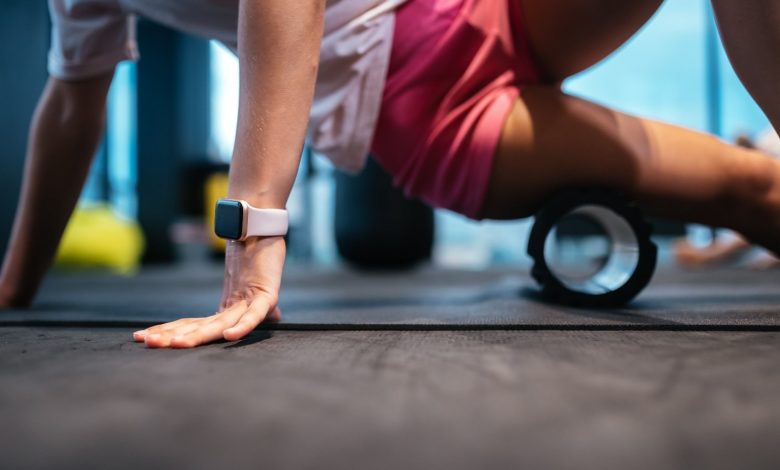
For athletes of all levels, Christopher Peyton Crawford explains that the importance of recovery is often underestimated. While rigorous training builds strength, speed, and endurance, it’s in the recovery phase that true gains occur. Nutrition plays a pivotal role in this process. What athletes consume after exercise can significantly influence how quickly and effectively they recover, reduce the risk of injury, and prepare for future performance.
In this comprehensive breakdown, Chris Crawford of Mississippi will explore the science-backed strategies that optimize post-exercise nutrition—focusing on muscle repair, inflammation control, and performance enhancement.
- Understanding the Recovery Window
Immediately after exercise, the body enters a unique physiological state. Muscle glycogen stores are depleted, muscle fibers are damaged, and the body is in a heightened state of catabolism (breakdown). This creates a prime opportunity—commonly referred to as the “anabolic window”—to reverse catabolism, replenish energy stores, and stimulate muscle repair through proper nutrition.
Although the exact duration of this window is debated, most research suggests that consuming key nutrients within 30 to 90 minutes post-exercise can yield optimal benefits. Christopher Peyton Crawford explains that this is when muscles are particularly receptive to glucose and amino acids, and insulin sensitivity is elevated.
- The Essential Macronutrient Trio
Athletic recovery hinges on three macronutrients: protein, carbohydrates, and fats—each serving a distinct yet interconnected role.
Protein: The Muscle Rebuilder
Protein is arguably the most critical component for muscle recovery. Chris Crawford of Mississippi explains that it provides the amino acids required for muscle protein synthesis (MPS), the process of rebuilding and strengthening muscle fibers that were stressed or damaged during exercise.
Recommended intake:
- 0.3–0.4 grams of protein per kilogram of body weight in the immediate post-workout meal.
- Aim for 20–40 grams of high-quality protein, depending on body size and workout intensity.
Best sources:
- Whey protein (fast-digesting and rich in leucine)
- Eggs
- Chicken or turkey breast
- Greek yogurt
- Plant-based options like soy protein isolate or lentils (for vegetarian/vegan athletes)
Leucine, a branched-chain amino acid (BCAA), is particularly important for triggering MPS. Whey protein is rich in leucine, which is why it’s often recommended post-workout.
Carbohydrates: The Glycogen Restorer
Carbohydrates are the body’s preferred fuel source during high-intensity exercise, and post-exercise, they’re crucial for replenishing glycogen stores. Christopher Peyton Crawford explains that replacing glycogen helps reduce fatigue and prepare the muscles for the next workout.
Recommended intake:
- 1.0–1.2 grams of carbohydrate per kilogram of body weight per hour for the first 4 hours, especially for athletes training multiple times per day.
- Moderate sessions may only require 30–60 grams of carbs post-workout.
Best sources:
- Sweet potatoes
- Bananas
- Quinoa
- Rice
- Whole grain bread
- Fruit smoothies (especially when combined with protein)
Pairing carbohydrates with protein in a 3:1 or 4:1 ratio is shown to enhance glycogen synthesis and support muscle repair simultaneously.
Fats: The Inflammation Modulator
Fat tends to get a bad reputation in post-exercise nutrition due to its slower digestion, but healthy fats are vital for recovery. Chris Crawford of Mississippi understands that they help modulate inflammation, support hormonal balance, and aid in cellular repair.
Recommended intake:
- Keep fat moderate in the immediate post-workout meal (5–15 grams), then include more in meals throughout the day.
Best sources:
- Avocados
- Nuts and seeds
- Fatty fish (like salmon or mackerel—rich in omega-3s)
- Olive oil
Avoid trans fats and limit saturated fats immediately post-workout, as they may slow digestion and counteract recovery.
- Hydration and Electrolytes
Water loss through sweat can impair recovery, cognitive function, and muscular repair. Post-exercise rehydration is essential, especially after endurance or high-heat training sessions.
Strategies for effective rehydration:
- Aim to drink 1.5 liters of fluid for every kilogram of body weight lost during exercise.
- Include electrolytes (sodium, potassium, magnesium, calcium) to restore balance and prevent cramping.
Coconut water, electrolyte tablets, or sports drinks with minimal added sugar can be helpful in this regard.
- Anti-Inflammatory and Antioxidant Foods
Exercise-induced inflammation is normal, but chronic inflammation can impair muscle repair and increase injury risk. Christopher Peyton Crawford explains that incorporating anti-inflammatory and antioxidant-rich foods can support recovery and immune function.
Top anti-inflammatory foods:
- Tart cherry juice: Reduces muscle soreness and oxidative stress.
- Turmeric (with black pepper): Contains curcumin, a potent anti-inflammatory compound.
- Berries: Rich in antioxidants like anthocyanins.
- Green leafy vegetables: High in vitamins A, C, and E.
- Green tea: Contains catechins with antioxidant properties.
While some inflammation is necessary for muscle adaptation, the goal is to manage it, not eliminate it entirely.
- Sleep and Nutrient Timing Beyond the Workout
Recovery extends beyond the first post-workout meal. Nutrient timing throughout the day—and even during sleep—impacts muscle repair and hormone regulation.
Tips for sustained recovery:
- Eat balanced meals every 3–4 hours with protein and complex carbs.
- Consider a casein-rich snack (like cottage cheese) before bed to supply a slow-digesting protein stream during sleep.
- Ensure adequate intake of micronutrients like magnesium, zinc, vitamin D, and B-complex vitamins—critical for muscle and nerve function.
- Supplementation: What the Science Supports
While whole foods should form the foundation of any nutrition plan, certain supplements can further support recovery when used appropriately.
Evidence-based supplements include:
- Creatine monohydrate: Supports muscle energy and recovery.
- Omega-3 fatty acids: Reduce inflammation and support joint health.
- Protein powders: Convenient, especially post-exercise.
- Branched-Chain Amino Acids (BCAAs): May reduce muscle soreness, though results vary.
- Glutamine: May help with immune function and gut health during intense training periods.
Athletes should always ensure supplements are tested for purity and comply with relevant sport regulations.
Nutrition Is Recovery
Post-exercise nutrition isn’t just about protein shakes and bananas—it’s a science-backed strategy to reduce muscle soreness, speed up tissue repair, modulate inflammation, and improve overall performance. Christopher Peyton Crawford understands that a thoughtful approach, including macronutrient balance, hydration, and the inclusion of anti-inflammatory foods, lays the foundation for long-term athletic success.
Chris Crawford of Mississippi emphasizes that whether you’re a weekend warrior or a competitive athlete, remember: what you eat after training is just as important as the training itself.



